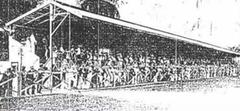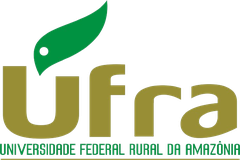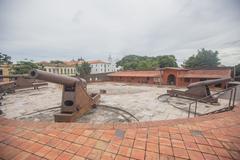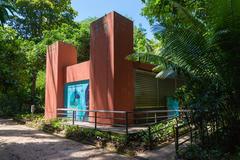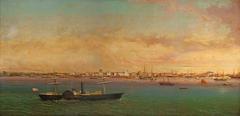Ecomuseu da Amazônia Visiting Hours, Tickets, and Guide to Belém Historical Sites
Date: 14/06/2025
Introduction
The Ecomuseu da Amazônia, located in Belém, Pará, is a pioneering cultural and environmental institution that immerses visitors in the living heritage of the Amazon region. Officially established in 2007, the Ecomuseu distinguishes itself with a community-centered museology model, placing local island communities at the forefront of cultural preservation, environmental stewardship, and sustainable development. Spanning the islands of Caratateua (Outeiro), Mosqueiro, and Cotijuba, the museum offers not only exhibitions but also community-led tourism, workshops, festivals, and environmental education programs—ensuring an authentic experience of Amazonian traditions and ecosystems.
Generally open from Tuesday to Sunday, 9:00 AM to 5:00 PM, the Ecomuseu offers free or low-cost admission, with guided tours and special events available by reservation. The institution’s structure and activities emphasize sustainable livelihoods, local craftsmanship, and cultural transmission, empowering local residents—especially youth and women. Accessibility measures ensure that people with different needs can participate fully.
Visitors to the Ecomuseu da Amazônia can explore traditional pottery in Icoaraci, join heritage cycling tours on Cotijuba, or participate in community festivals such as the Mostra de Saberes and Fest Choco. Beyond the museum, Belém’s historical sites like the Mercado Ver-o-Peso and Museu Paraense Emílio Goeldi further enrich the journey.
This guide provides a detailed overview of the Ecomuseu da Amazônia’s history, cultural significance, visitor information (including visiting hours and tickets), practical tips, and the museum’s role in community engagement and sustainability. For current details, consult the museum’s official channels or download resources like the Audiala app for enhanced tours and updates (Wikipedia; Visite Museus; Official Site).
Table of Contents
- Welcome: Discovering History, Culture, and Nature
- History of the Ecomuseu da Amazônia
- Practical Information for Visitors
- Visiting the Ecomuseu: Exhibitions, Educational Programs, and Events
- Visitor Experience: Facilities, Activities, and Recommendations
- Special Events and Seasonal Programming
- Sustainability and Community Impact
- Frequently Asked Questions (FAQ)
- Visuals and Media
- Contact and Further Information
- Conclusion
- References
Welcome to the Ecomuseu da Amazônia
The Ecomuseu da Amazônia invites tourists and locals to explore the unique cultural and environmental heritage of Belém’s island communities. Through sustainable tourism, community-led cultural events, and educational activities, visitors can forge an authentic connection with the Amazon’s landscapes and social fabric.
History of the Ecomuseu da Amazônia
Origins and Development
The Ecomuseu da Amazônia was officially established in 2007 as a program of the Prefeitura Municipal de Belém, managed by the Secretaria Municipal de Educação (SEMEC) and the Fundação Escola Bosque Professor Eidorfe Moreira (Funbosque) (Wikipedia; Visite Museus). Its roots date back to 1995/1996 with the creation of the Subsistema de Educação para o Desenvolvimento Sustentável, emphasizing local culture and research on human, environmental, and social ecology (UFPA PDF). Inspired by French social museology, the Ecomuseu centers territory and community in all its actions (Redalyc PDF). It remains the only ecomuseum in the Belém metropolitan area and in Pará, operating across the islands of Caratateua (Outeiro), Mosqueiro, and Cotijuba (UFPA PDF).
Structure and Thematic Pillars
The Ecomuseu operates with a polynucleated structure, developing projects in multiple community centers. Its four thematic pillars are:
- Community-Based Tourism
- Culture
- Environment
- Citizenship
Activities span sustainable family agriculture, fish farming, biomapping, support for handicrafts, and sustainable tourism (Redalyc PDF).
Community Engagement
Active participation from the island communities is fundamental. Residents help document and value local heritage, act as tour guides, and organize events. Community-based tourism initiatives empower locals—especially in communities like Fazendinha and Poção—to serve as guides and manage services, boosting local income (UFPA PDF; Redalyc PDF).
Heritage and Environmental Education
The museum provides workshops, lectures, and guided visits, fostering environmental awareness and cultural appreciation. These activities honor local knowledge and encourage intergenerational exchange (Wikipedia).
Sustainability and Local Empowerment
The Ecomuseu advances sustainable development by integrating conservation, cultural appreciation, and economic opportunities, particularly for youth and women (Redalyc PDF).
Partnerships and Networks
Collaboration with universities, public agencies, and NGOs expands the museum’s reach and strengthens Amazonian heritage protection (UFPA PDF).
Cultural Events and Activities
Notable events include the Mostra de Saberes, Fazeres e Sabores do Pescado, Pôr do Sol Cultural, and Fest Choco, which celebrate cultural diversity and support the creative economy (Blogspot).
Practical Information for Visitors
Visiting Hours
Open Tuesday to Sunday, 9:00 AM to 5:00 PM. Guided tours are best reserved in advance.
Tickets and Reservations
Admission is free. For group visits or guided tours, reserve in advance via the official website or through Funbosque. Some special activities may have an additional fee.
Accessibility
The museum is committed to accessibility, with staff trained to assist and facilities adapted for visitors with reduced mobility.
Getting There
- Caratateua (Outeiro): Accessible by road or boat from central Belém.
- Mosqueiro: Accessible by road or river.
- Cotijuba: Boat only, with regular departures from Belém’s port.
Check local transport schedules and plan for travel time.
Visitor Tips
- Wear light, comfortable clothing, and use sunscreen and insect repellent.
- Bring water and snacks for longer visits.
- Participate in workshops and cultural events for a richer experience.
Nearby Attractions
Explore other Belém sites such as Mercado Ver-o-Peso, Forte do Presépio, and Museu Paraense Emílio Goeldi.
Visiting the Ecomuseu: Exhibitions, Educational Programs, and Events
Exhibitions
The Ecomuseu’s exhibitions emphasize living heritage and are co-created with local communities. Notable ongoing and recent exhibitions include:
- Itinerário de Ausências: Explores memory and belonging.
- Roteiro de Memória: Combines site visits, workshops, and regional cuisine.
Exhibitions are organized around four pillars: culture, citizenship, tourism, and environment.
Educational Programs
Programs are participatory, aligning with Paulo Freire’s philosophy. Highlights include:
- Heritage Routes: Community-led walking tours.
- Workshops: Ceramics, dance, music, and crafts.
- Youth Engagement: Training youth as cultural agents.
Community Events
Annual events such as Semana Nacional de Museus and Círculo da Memória feature storytelling, performances, and cultural celebrations. Community members help plan and curate events, fostering a sense of ownership.
Visitor Tips
- Consult the museum calendar for upcoming events.
- Engage fully in workshops and respect local customs.
- Support artisans by purchasing local crafts.
Visitor Experience: Facilities, Activities, and Recommendations
Facilities
- Ecoarte Space: Live craft demonstrations and artisan products.
- Galeria Jirau: Displays iconic Pará handicrafts.
- Rest Areas: Shaded seating and picnic spots.
- Restrooms: Clean and accessible facilities.
- Guides: Available for group tours.
Activities
- Cultural Workshops: Participate in ceramics and woodcraft activities.
- Performances: Enjoy carimbó dance and folk theater.
- Nature Trails: Guided walks through Amazonian forest.
- Cyclotourism: Heritage cycling tours on Cotijuba.
- Local Cuisine: Meals at community-run sites offering Amazonian dishes.
Recommendations
- Visit during the dry season (June–September) for more comfortable weather.
- Bring sturdy footwear, insect repellent, and cash for artisan markets.
- Plan ahead, especially during major events like COP-30.
Special Events and Seasonal Programming
The Ecomuseu hosts expanded programming during events such as the Semana Nacional de Museus and the upcoming COP-30, offering memory tours, heritage routes, and community festivities (RedePará).
Sustainability and Community Impact
Operating on a community-based tourism model, the Ecomuseu supports environmental conservation, cultural preservation, and local economic empowerment. Participation in museum activities directly benefits the island communities (RedePará).
Frequently Asked Questions (FAQ)
Q: What are the visiting hours?
A: Tuesday to Sunday, 9:00 AM to 5:00 PM.
Q: How much are tickets?
A: Admission is free; some events or workshops may have a fee.
Q: Is the museum accessible?
A: Yes, with adapted facilities for visitors with mobility needs.
Q: Are guided tours available?
A: Yes, guided tours can be booked in advance.
Q: What is the best time to visit?
A: The dry season (June to September) is recommended.
Q: Can I bring children?
A: Yes, many activities are family-friendly.
Visuals and Media
The museum’s official website and social media showcase photos, virtual tours, and videos of crafts, nature trails, and community events. Use descriptive alt text, such as “Ecomuseu da Amazônia visiting hours” and “Belém historical sites,” to enhance accessibility and SEO.
Contact and Further Information
For updated schedules, programming, and reservations, visit the official website or contact the Belém municipal tourism office. Advance planning is recommended for large events (RedePará).
Conclusion
The Ecomuseu da Amazônia blends history, culture, and sustainability, offering an immersive experience for visitors to Belém. Emphasizing community participation and environmental stewardship, the museum is a must-visit for those seeking authentic Amazonian encounters. For travel tips, event updates, and bookings, consult the official website and download the Audiala app. Enhance your journey by exploring nearby attractions and engaging fully with the living heritage of the Amazon.
References
- Wikipedia
- Visite Museus
- UFPA PDF
- Redalyc PDF
- Official Site
- Educação e Território
- RedePará
- Hurfpost Brasil
- Blogspot


